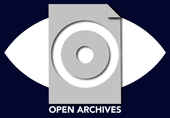Retroactive and generative loops in the narrative construction of pedagogical and didactic knowledge of teachers in university contexts
Palabras clave:
Complexity, University Didactics, Teaching knowledge, Pedagogical knowledgeResumen
This research article shows the final results of the research project "Construction of knowledge on teaching practice at Santo Tomás University – Bucaramanga: A contribution from the paradigm of complexity", which seeks to show the construction of pedagogical and didactic knowledge from said paradigm, based on the recognition and reflection on teaching practice narratives. As a methodology, a research based on an interpretative approach with a narrative design was proposed. The data were collected through semi-structured interviews analyzed with the support of Atlas.ti software; the interpretative model was based on the categorization of units of meaning from the categories of recognition and reflection, followed by a description, interpretation and conceptualization. Seven main teaching strategies and actions were identified as implemented by teachers: project-based learning; integrating project; workshops and collaborative groups; practices and use of laboratories; use of ICT; classroom research, and use and production of support material. The reflections revolved around: teacher planning; concepts, implementation and training in the institutional pedagogical educational model; teacher training; academic performance; monitoring of learning, strengths and weaknesses. It was concluded that pedagogical knowledge is the result of the reflective processes or the practice the teacher carries out on the planning, development and evaluation of the formative process. Pedagogical and didactic elements are interwoven there in a simultaneous, complementary and antagonistic way, constituting their complex character.
Descargas
Descargas
Publicado
Cómo citar
Número
Sección
Licencia
El aviso de Copyright abajo expuesto aparecerá en la sección "Sobre Nosotros" de la revista y en cada metadato de los ítems publicados. Si bien corresponde a la revista determinar la naturaleza de su acuerdo de derecho de autor con los autores, el Proyecto de Conocimiento Público (PKP) recomienda el uso de la licenciaCreative Commons. A tal fín,se proporciona el ejemplo de aviso de Copyright que puede ser copiado y pegado en el espacio inferior para revistas que (a) ofrezcan acceso abierto, (b) ofrezcan acceso abierto retardado, o (c) no ofrezcan acceso abierto.








